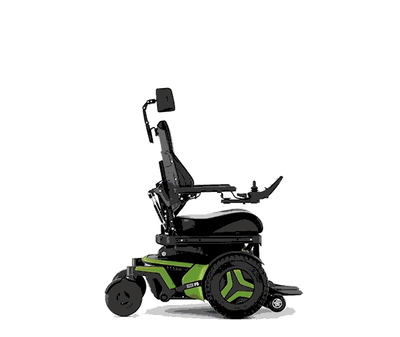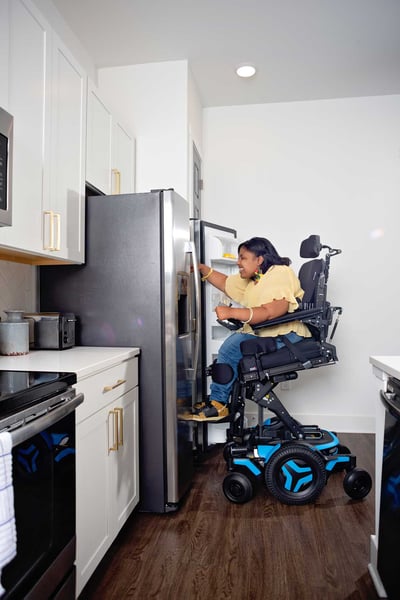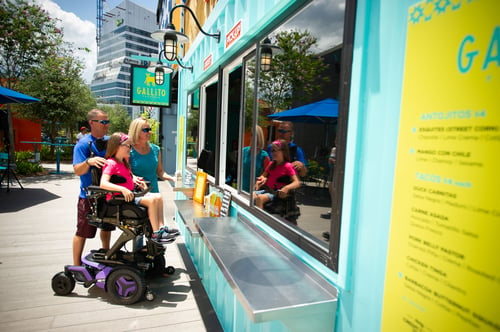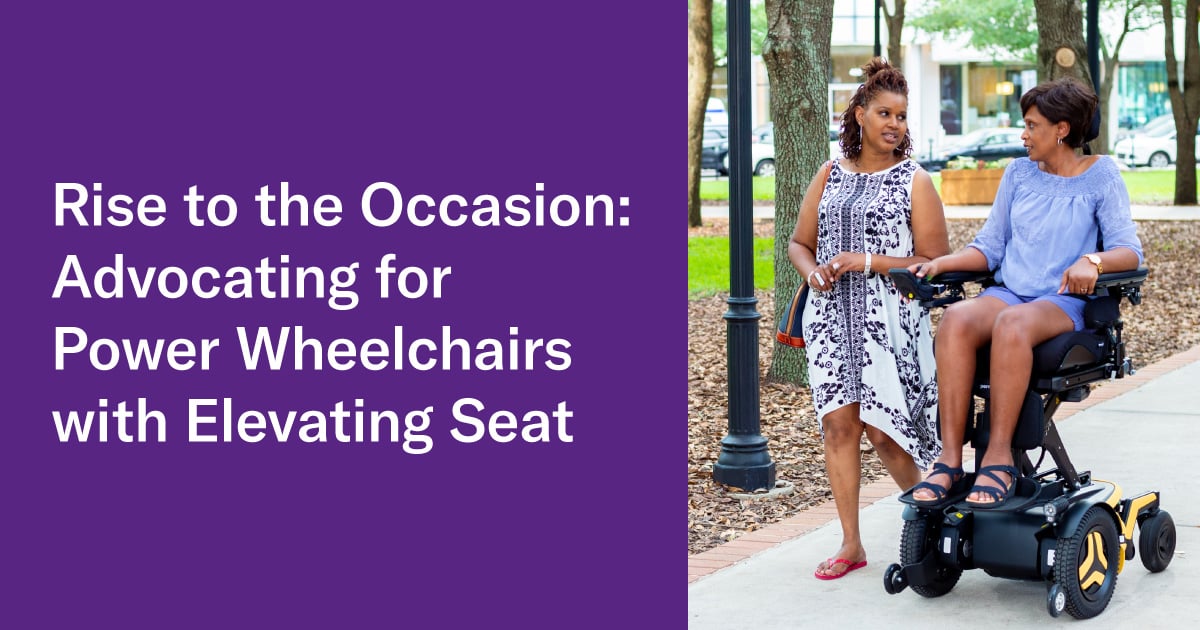Technology has evolved greatly since the first Permobil power wheelchair with seat elevation was built over 30 years ago. For example, ActiveHeight™, available on the Permobil F3, F5, F5 VS, M3, and M5 wheelchairs, features three points of contact and a 3.5” rearward shift as the system elevates to allow for maximum stability with a smaller footprint in elevation. In addition, ActiveHeight does not lock out suspension at full elevation (up to 14”), which ensures a smooth ride up to the top speed of 3.2 MPH.

As the technology has been changing, the positive impact seat elevation is having on the people who use it has been undeniable. Not only have individuals who have seat elevate expressed how it has changed their lives for the better, in addition clinical evidence has been published to support the necessity of it. Potential benefits of seat elevation include improved safety during transfers; increased ability to independently engage in self-care activities; decreased cervical pain related to looking up to make eye contact with individuals who are standing; reduction in overuse injuries related to overhead reaching; and improved mental health.

With all of that said, it feels strange to be writing this article in 2022 knowing that Medicare in the United States of America still does not cover seat elevate on power wheelchairs because they have determined it to be “not primarily medical in nature” and is “not reasonable and necessary.” Many individuals and organizations, including Permobil, have been working tirelessly for several years to convince the Centers for Medicare and Medicaid Services (CMS) to change their policy on the funding of seat elevation resulting in recent progress in a positive direction.

On August 15th CMS opened a 30-day comment period on Medicare coverage of seat elevation systems power wheelchairs. According to the CMS website, members of the public are encouraged to provide additional information on the topic that may help with the final decision. This means CMS is asking to hear from individuals including those who use power wheelchairs, their allies (i.e., family members, caregivers, friends, coworkers, and neighbors) researchers, medical professionals, CRT professionals, etc. The time is now to influence real change and make seat elevation on power wheelchairs accessible to people who need it.
Everyone can make a difference during this critical time by becoming an advocate. Visit our Advocate for More site to learn more.
 Angie Kiger, M.Ed., CTRS, ATP/SMS
Angie Kiger, M.Ed., CTRS, ATP/SMS
Portfolio Marketing Manager
Angie Kiger, M.Ed., CTRS, ATP/SMS earned a Master of Education degree in Assistive Technology from George Mason University. She is an Assistive Technology Professional (ATP), Seating and Mobility Specialist (SMS), and a Certified Therapeutic Recreation Specialist (CTRS). Angie has over 20 years of experience working in the field of assistive technology serving infants, children, and adults in inpatient, outpatient, school, and community settings with a variety of diagnoses. In addition to working as a clinician, Angie has served as an adjunct instructor at George Mason University and presented hundreds of clinical education trainings both in-person and virtually for global audiences. She has written articles for trade publications and been involved in clinical research. Angie is a member of and serves on the executive board for the nationwide advocacy group The Clinician Task Force. She joined Permobil Americas in mid-2022.

